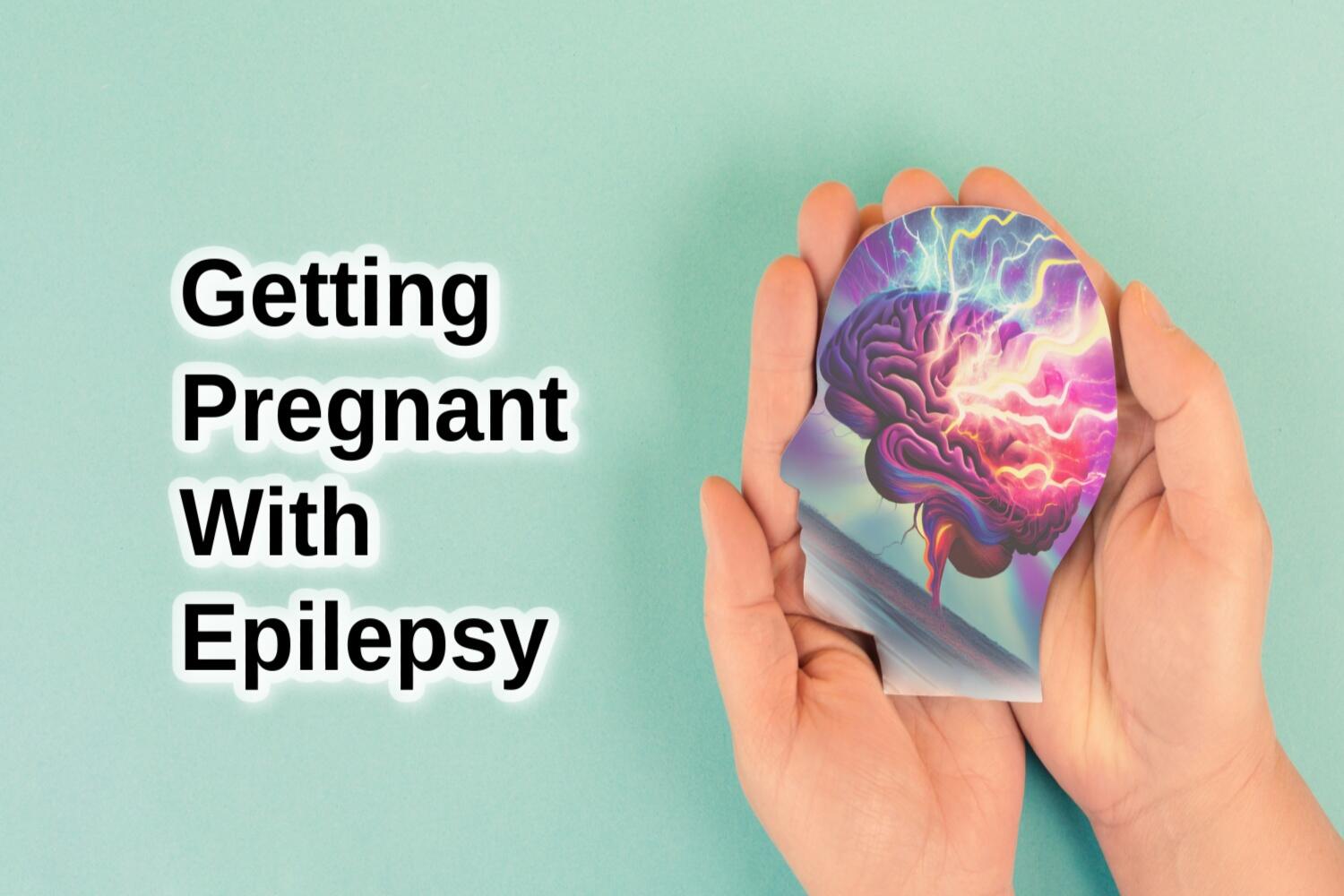
Epilepsy is a long-term disease resulting in recurrent seizures. Two or more seizure episodes are enough to diagnose epilepsy. There are various types of seizures mostly depending on the area of the brain involved. Nowadays, many antiepileptic drugs are available for treating this condition.
Seizure in itself can be quite disturbing. Getting pregnant with epilepsy can be furthermore challenging. It is true that epilepsy can create hurdles in your fertility journey but with the availability of good medications, this condition can be better manageable. Here is everything you need to know about your chances of getting pregnant when you have epilepsy.
In This Article
- What is Epilepsy?
- How Does Epilepsy Affect Chances of Conception?
- How Does Epilepsy Treatment Affect My Chances of Conception?
- Precautions to Take When Planning For Pregnancy With Epilepsy
- Risks of Getting Pregnant With Epilepsy
- When to Consult a Doctor
What is Epilepsy?
Epilepsy is a brain disorder causing certain neurological issues. It is characterized by repeated seizure episodes and sometimes even loss of consciousness. It is a chronic condition affecting about 0.3 to 0.8 per cent of pregnancies (1).
These seizures happen due to misfiring of electrical impulses in the brain. This results in sending out abnormal signals to the neurons. Normally, the generation of these impulses are in an orderly manner.
In epilepsy, there is an imbalance in the electrical rhythm affecting a person’s consciousness and movements. Broadly, there are two main types of seizures-Partial seizures and primary generalized seizures.
How Does Epilepsy Affect Chances of Conception?

Getting pregnant with epilepsy can be a bit difficult. This means that it might take a bit longer to get pregnant with epilepsy or with the intake of anti-epileptics. The reasons can be:
1. Irregular Menstrual Cycle
An irregular menstrual cycle can occur as a result of frequent seizures. This can cause conceiving difficulties for some women (2).
2. Anti-seizure Drugs
Certain anti-seizure drugs can affect hormone levels which, in tun, may affect reproductive function, thus reducing the chances of conception (3).
3. Anovulatory cycle
A menstrual cycle that does not release an egg is called an anovulatory cycle. Women with epilepsy experience more anovulatory cycles than a normal woman (2A).
4. PCOS
The incidence of polycystic ovarian syndrome is a bit higher in women with epilepsy. This results in an imbalance in the hormonal levels making it difficult to conceive (2B).
[Read: Anovulation- Causes, Symptoms, and Remedies]
How Does Epilepsy Treatment Affect My Chances of Conception?
You need to stay in contact with your doctor when planning a pregnancy. Some drugs might interfere with the chances of getting pregnant, you need to have good planning about that.
If you have had repeated episodes recently, then it is advisable to wait to get pregnant till the epilepsy is in better control. If you were seizure-free for about nine months before conceiving, then there are fewer chances of having a seizure during pregnancy.
For most women, it is best to continue antiepileptics during pregnancy. Your doctor will suggest lower doses and the least risky medications. Never stop taking your antiepileptic medicine without consulting your doctor (4). You should know that poorly managed epilepsy can be harmful to your baby.
How to Plan For Conception With Epilepsy?
Conception with epilespy can be complicated. You will need to consult with a specialist well in advance. A doctor who specialises in pregnancy with epilepsy can be greatly helpful. A good evaluation of how well your epilepsy is managed is really important. You might need to see a good neurologist too along with your gynecologist. Before trying to get pregnant, there might be a few treatment changes and dose adjustments.
If you have frequent seizures, you may need to wait for some time before planning to conceive.
Here are a few things you can do.
- Maintain a healthy lifestyle with a good diet.
- Take folic acid and other prenatal vitamins.
- Avoid stress and have proper sleep.
- Avoid excess caffeine, alcohol and cigarettes.
Precautions to Take When Planning For Pregnancy With Epilepsy

Folic acid is quintessential for the proper development of a baby. It is vital for proper neurological development. Hence, doctors recommend taking folic acid supplements a few months before conception to avoid neural tube defects.
Women with epilepsy need to take a higher dose of folic acid. Some studies recommend five to tenfold higher folate requirements in epileptic women (5). This is because antiepileptic medicines might decrease the amount of folic acid in the body.
Constant medical monitoring is a must. Make sure that you attend all your appointments without any delays. There might be a few alterations in your medicines which need proper monitoring.
You might need to take vitamin D supplements as well. Antiepileptic medicines can interfere with the metabolism of vitamin D (6).
Risks of Getting Pregnant With Epilepsy
Women with epilepsy can face certain challenging complications during pregnancy (7). They can arise from the disease or due to the medications used to treat it. The following are the risks.
- Decreased oxygenation to the fetus leading to hypoxia.
- Slowing of fetal heart rate.
- Premature delivery
- Low birth weight
- Low APGAR score
- Developmental delays in the baby.
- Trauma to the mother and the baby due to a fall during a seizure.
- Placental abruption due to accidental falls
- Birth defects due to certain antiepileptic medications
When to Consult a Doctor

If you are epileptic and trying to conceive, then it is better to start seeing your doctor. For a smooth pregnancy, your doctor will advise you on certain precautions and might taper you off a few medications.
Frequent monitoring of antiepileptics in the blood is also important too.
An expert medical doctor should be able to guide you through this process properly.
With accurate medical management and stringent monitoring, you can navigate pregnancy with epilepsy without many complications. Hence, getting pregnant with epilepsy should not be any hindrance, if properly managed. Once you get those two lines positive on your test, go to your healthcare provider to plan a proper management plan.
FAQ’s
1. Can Epilepsy Affect my Chances of Getting Pregnant?
Women with epilepsy might have few fertility issues. However, with proper management of the disease and with the help of dose-appropriate antiepileptic drugs, a healthy pregnancy is achievable.
2. How to Get Pregnant With Epilepsy?
Getting pregnant with epilepsy requires proper pre-conception counselling. This helps in knowing the risks and benefits of the antiepileptic and how these must be altered to allow for a successful pregnancy.
3. Can I Breastfeed my Baby if I Have Epilepsy?
Yes, you can continue breastfeeding your baby while taking antiepileptics. There is a possibility of passing on the drug in the breast milk but it does not cause any long-term developmental issues in the baby.
4. Will my Child Have Epilepsy if I Am Epileptic?
Epilepsy can have a genetic component, but it is quite rare that you can pass on this condition to your baby. There is a very slight increase in the chances of having an epileptic baby. If that concerns you, meeting a genetic counsellor can help.
References
- Epilepsy and Pregnancy : CONTINUUM: Lifelong Learning in Neurology – [https://journals.lww.com/continuum/abstract/2022/02000/epilepsy_and_pregnancy.5.aspx]
- Epilepsy and Issues Related to Reproductive Health – PMC – [https://www.ncbi.nlm.nih.gov/pmc/articles/PMC10693679/]
- Effect of antiepileptic drugs on reproductive endocrine function in individuals with epilepsy – PubMed – [https://pubmed.ncbi.nlm.nih.gov/15740176/]
- Antiepileptic drugs in women with epilepsy during pregnancy – [https://journals.sagepub.com/doi/full/10.1177/2042098611433192]
- Epilepsy and Pregnancy – PMC – [https://www.ncbi.nlm.nih.gov/pmc/articles/PMC9642109/]
- Low vitamin D levels are common in patients with epilepsy – ScienceDirect – [https://www.sciencedirect.com/science/article/abs/pii/S0920121114001661]
- Obstetrical complications in women with epilepsy – ScienceDirect – [https://www.sciencedirect.com/science/article/pii/S1059131115000461]
